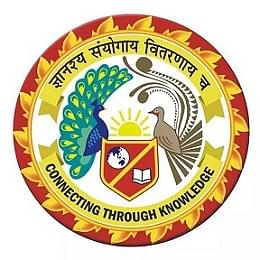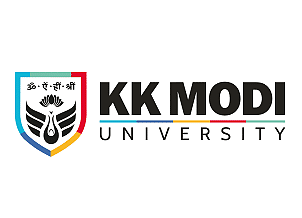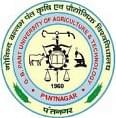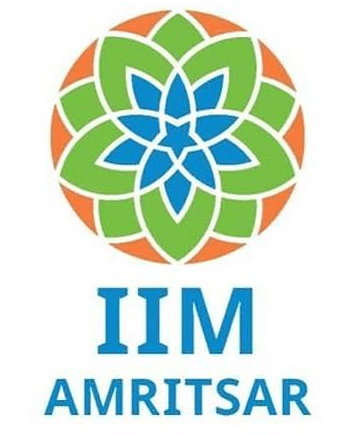Introduction about Bachelor of Engineering (B.E.)
The Bachelor of
Engineering (B.E.) from the top college in India is an undergraduate
academic degree awarded to students who complete a course of study in the field
of engineering. It is a popular choice for individuals passionate about
understanding the principles of engineering and applying them to solve
real-world problems across various industries.
Here's an
introduction to the Bachelor of Engineering program:
1. Core Curriculum: B.E. programs typically provide students
with a strong foundation in mathematics, physics, and basic engineering
principles during the initial years. This foundation is essential for
understanding advanced concepts in specialized engineering disciplines.
2. Specializations: B.E. programs offer students the
opportunity to specialize in specific branches of engineering such as
electrical, mechanical, civil, computer, chemical, aerospace, and more. Each
specialization focuses on different aspects of engineering, allowing students
to develop expertise in their chosen field.
3. Hands-on
Learning: Many B.E.
programs emphasize hands-on learning experiences, including laboratory work,
projects, and internships. These practical experiences help students apply
theoretical knowledge to real-world situations, enhancing their problem-solving
skills and technical proficiency.
4.
Interdisciplinary Approach:
Engineering is often interdisciplinary, requiring knowledge from multiple
fields to tackle complex challenges. B.E. programs may incorporate elements of
other disciplines such as mathematics, computer science, physics, and materials
science to provide students with a holistic understanding of engineering
principles.
5. Professional
Development: Throughout the
B.E. program, students develop important skills such as critical thinking,
teamwork, communication, and project management. These skills are essential for
success in the engineering profession, where collaboration and effective
communication are paramount.
6. Career
Opportunities: Graduates of
B.E. programs are well-equipped to pursue careers in various industries,
including manufacturing, construction, technology, energy, healthcare, and
transportation. They may work as design engineers, project managers,
consultants, researchers, or entrepreneurs, among other roles.
7. Continuing
Education: Some B.E.
graduates choose to further their education by pursuing master's or doctoral
degrees in engineering or related fields. Advanced degrees can lead to
opportunities for specialization, research, teaching, and leadership roles in
academia, industry, or government.
Overall, the
Bachelor of Engineering program provides students with a comprehensive
education in engineering principles, preparing them for rewarding careers where
they can contribute to innovation, sustainable development, and societal
advancement.
What is eligibility for admission at Bachelor of
Engineering (B.E.) ?
The eligibility
criteria for admission at the top affordable Bachelor of Engineering (B.E.)college program can vary depending
on the university or college offering the program and the country's educational
system. However, there are some common requirements typically observed across
institutions. Here are the general eligibility criteria:
ü Educational Qualifications: Candidates must have completed their
secondary education or equivalent, usually with a strong emphasis on
mathematics, physics, and chemistry. The specific requirements may vary, but
most institutions require applicants to have passed their high school or
equivalent examination with a certain minimum grade or percentage.
ü Minimum Marks: Many universities and colleges set minimum
marks or grades in relevant subjects (such as mathematics, physics, and
chemistry) for eligibility for admission to the B.E. program. These minimum
marks may vary depending on the institution and the competitiveness of the
program.
ü Entrance Examinations: In many countries, admission to B.E.
programs is based on performance in entrance examinations. These exams assess
the candidate's aptitude in subjects like mathematics, physics, and chemistry,
as well as problem-solving and analytical skills. Some common entrance exams
for B.E. programs include JEE (Joint Entrance Examination) in India, SAT
(Scholastic Assessment Test) in the United States, and others specific to each
country or region.
ü Language Proficiency: For international students or in regions
where the language of instruction is not the native language, proficiency in
the language of instruction (usually English) may be required. This proficiency
is often demonstrated through standardized tests such as the TOEFL (Test of
English as a Foreign Language) or IELTS (International English Language Testing
System).
ü Other Requirements: Some institutions may have additional
requirements, such as letters of recommendation, personal statements or essays,
interviews, or portfolios showcasing the candidate's interest and abilities in
engineering-related subjects.
It's essential for
prospective students to carefully review the specific eligibility criteria and
admission requirements of the institutions and programs they are interested in
applying to. Additionally, admission processes, including deadlines, application
procedures, and required documents, may vary from one institution to another,
so it's crucial to stay informed and plan accordingly.
What is admission process for Bachelor of
Engineering (B.E.) ?
The admission
process for Bachelor of Engineering (B.E.) at the best college programs typically involves several steps,
which may vary slightly depending on the institution and country. Here's a
general overview of the admission process:
o Research and Exploration: Prospective students should research B.E.
programs offered by various universities and colleges to identify the
institutions that best align with their academic interests, career goals, and
personal preferences. This may involve reviewing program curricula, faculty
profiles, campus facilities, and student resources.
o Eligibility Check: Before applying, candidates should
carefully review the eligibility criteria for admission to B.E. programs at
their chosen institutions. This includes educational qualifications, minimum
marks or grades, entrance examination requirements, language proficiency, and
any other specific requirements set by the institution.
o Entrance Examinations: In many countries, admission to B.E.
programs is based on performance in standardized entrance examinations.
Candidates are typically required to register for and appear in these exams,
which assess their aptitude in subjects like mathematics, physics, and
chemistry, as well as problem-solving and analytical skills. Common entrance
exams for B.E. programs include JEE (Joint Entrance Examination) in India, SAT
(Scholastic Assessment Test) in the United States, and others specific to each
country or region.
o Application Submission: Once eligible, candidates must submit their
applications for admission to the B.E. program at their chosen institutions.
The application process usually involves completing an online or paper
application form, providing personal and academic information, and paying any
required application fees. Additionally, candidates may need to submit
supporting documents such as transcripts, standardized test scores, letters of
recommendation, personal statements or essays, and proof of language
proficiency (if applicable).
o Admission Evaluation: After receiving applications, the
institution's admission committee evaluates each candidate's academic
qualifications, standardized test scores, and supporting documents. They
consider factors such as academic performance, extracurricular activities, leadership
experience, community service, and other relevant achievements.
o Interviews (if applicable): Some institutions may require candidates to
participate in interviews as part of the admission process. Interviews provide
an opportunity for candidates to showcase their personality, communication
skills, motivation, and suitability for the B.E. program.
o Admission Offer: Successful candidates receive admission
offers from the institution, indicating their acceptance into the B.E. program.
The admission offer typically includes details such as the program start date,
tuition fees, enrollment deadlines, and any conditions of acceptance that must
be fulfilled.
o Acceptance and Enrollment: Candidates who receive admission offers
must formally accept the offer by the specified deadline and complete any
required enrollment procedures. This may involve paying a deposit or enrollment
fee, submitting additional documents, and registering for classes.
o Orientation and Registration: Newly admitted students participate in
orientation sessions conducted by the institution to familiarize themselves
with campus life, academic policies, support services, and other essential
information. They also register for courses for their first semester or term in
the B.E. program.
o Commencement of Classes: The admission process culminates with the
commencement of classes, marking the beginning of the students' academic
journey in the Bachelor of Engineering program. Students attend lectures,
participate in laboratory sessions, engage in projects, and begin their
exploration of the diverse fields of engineering.
It's important for
prospective students to carefully follow the admission process timeline, adhere
to deadlines, and ensure that all application requirements are met to maximize
their chances of admission to their desired B.E. programs. Additionally, seeking
guidance from academic advisors, admissions counselors, and current students
can provide valuable insights and support throughout the admission process.
What is syllabus for Bachelor of Engineering (B.E.)
?
The syllabus for
Bachelor of Engineering (B.E.) programs varies depending on the specialization
or branch of engineering chosen by the student, as well as the specific
requirements of the university or college offering the program. However, there
are common core subjects and areas of study that are typically included in most
B.E. programs regardless of specialization. Here's a general overview of the
syllabus for B.E. programs:
§ Foundation Courses:
§ Mathematics: Calculus, Differential
Equations, Linear Algebra, Probability and Statistics.
§ Physics: Mechanics, Thermodynamics,
Electricity and Magnetism, Waves and Optics.
§ Chemistry: Basic Principles, Organic
Chemistry, Inorganic Chemistry.
§ Core Engineering Courses:
§ Engineering Mechanics
§ Engineering Graphics and Design
§ Engineering Materials and Metallurgy
§ Electrical Circuits and Electronics
§ Thermodynamics and Heat Transfer
§ Fluid Mechanics and Hydraulics
§ Strength of Materials
§ Machine Design
§ Control Systems
§ Environmental Engineering
§ Transportation Engineering
§ Structural Analysis and Design
§ Manufacturing Processes
§ Robotics and Automation
§ Specialization Courses:
§ Depending on the chosen specialization
(e.g., electrical engineering, mechanical engineering, civil engineering,
computer engineering, etc.), students will study advanced topics specific to
that field. For example:
§ Electrical Engineering: Power Systems,
Electric Machines, Digital Electronics, Signals and Systems.
§ Mechanical Engineering: Kinematics and
Dynamics of Machines, Refrigeration and Air Conditioning, Finite Element
Analysis.
§ Civil Engineering: Geotechnical Engineering,
Construction Management, Water Resources Engineering.
§ Computer Engineering: Data Structures and
Algorithms, Computer Networks, Operating Systems, Software Engineering.
§ Elective Courses:
§ B.E. programs often offer a range of
elective courses that allow students to customize their curriculum based on
their interests and career goals. Elective courses may cover advanced topics
within the chosen specialization or explore interdisciplinary areas.
§ Laboratory Work and Projects:
§ B.E. programs typically include laboratory
sessions and project work to provide hands-on experience and practical skills
development. Students conduct experiments, analyze data, and work on design
projects related to their field of study.
§ Professional Development Courses:
§ Some B.E. programs include courses or
modules focused on professional development skills such as communication,
teamwork, leadership, ethics, and project management. These skills are
essential for success in the engineering profession and are often integrated
into the curriculum.
§ Internship or Industrial Training:
§ Many B.E. programs require students to
complete internships or industrial training as part of their curriculum. This
provides students with real-world work experience, exposure to industry
practices, and opportunities to apply their knowledge in a professional
setting.
It's important to
note that the specific syllabus and course offerings may vary from one
institution to another, and students should refer to the official website or
academic catalog of the respective university or college for detailed
information on the B.E. program syllabus. Additionally, B.E. programs may
undergo periodic updates and revisions to align with advancements in
technology, industry requirements, and educational standards.
What are scopes after Bachelor of Engineering
(B.E.) ?
After completing a
Bachelor of Engineering (B.E.) degree, graduates have a wide range of career
opportunities across various industries. Here are some common career paths and
scopes for B.E. graduates:
Engineering Jobs: B.E. graduates can work as engineers in
their chosen specialization, such as:
Electrical Engineer
Mechanical Engineer
Civil Engineer
Computer Engineer
Chemical Engineer
Aerospace Engineer
Biomedical Engineer
Environmental
Engineer
Automotive Engineer
Manufacturing
Engineer
Research and
Development (R&D): B.E.
graduates can pursue careers in research and development, where they contribute
to innovation and the advancement of technology in fields such as:
Product Development
Technology Research
Process Improvement
Materials Research
Renewable Energy
Nanotechnology
o Consulting: B.E. graduates may work as engineering
consultants, providing expert advice and solutions to businesses, governments,
or organizations. They may specialize in areas such as:
Engineering Design
Project Management
Quality Assurance
Sustainability
Risk Assessment
o Construction and Infrastructure: B.E. graduates can work in the
construction industry, contributing to the planning, design, and implementation
of infrastructure projects such as:
Building
Construction
Bridge and Highway
Engineering
Urban Planning
Water and
Wastewater Management
Transportation
Systems
o Information Technology (IT) and
Software Development: B.E.
graduates with a specialization in computer engineering or software engineering
can pursue careers in IT and software development, including roles such as:
Software Developer
Systems Analyst
Database
Administrator
Network Engineer
Cybersecurity
Analyst
o Entrepreneurship: B.E. graduates with innovative ideas and
entrepreneurial spirit can start their own businesses or technology startups,
developing products or services in areas such as:
Hardware
Development
Software
Applications
Internet of Things
(IoT)
Artificial
Intelligence (AI)
Clean Energy
Solutions
o Higher Education and Academia: B.E. graduates interested in teaching,
research, or academia can pursue advanced degrees (such as Master of
Engineering, Master of Science, or Ph.D.) and become professors, researchers,
or scholars in academic institutions.
o Government and Public Sector: B.E. graduates may find opportunities to
work in government agencies, regulatory bodies, or public-sector organizations,
contributing to projects related to infrastructure, public safety,
environmental protection, and technology policy.
Overall, the scope
after Bachelor of Engineering (B.E.) is vast and diverse, offering
opportunities for graduates to make significant contributions to society,
advance technology, and build rewarding careers in their chosen fields of
engineering and technology.












